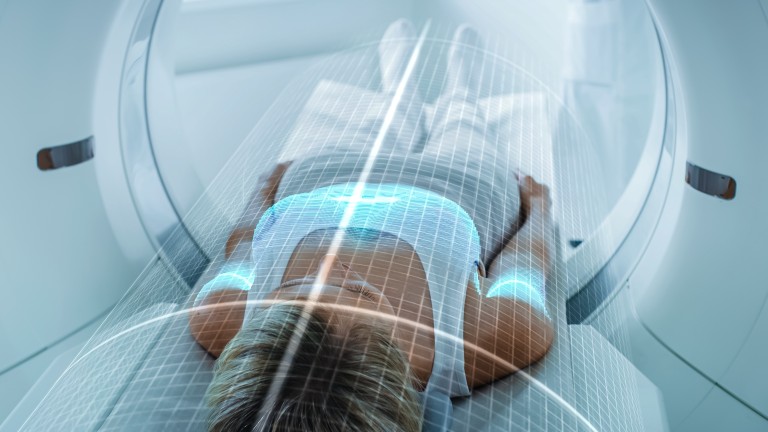Understanding Metastatic Breast Cancer: Symptoms, Causes, Diagnosis, and Treatment

As per reports, there’s an alarming rate of the growth of breast cancer. Around 2.3 million women were diagnosed with this disease, and about 685,000 women died from the disease.
Metastatic breast cancer is also known as stage IV breast cancer. It is an advanced form of cancer. Here, the cancerous cells multiply quickly. The multiplication is so fast that the cancer can spread beyond the breast to other body parts. Metastatic breast cancer is a significant global health concern. This blog will discuss everything you need to know!
Symptoms of Metastatic Breast Cancer
There may be chances of developing metastatic breast cancer if you have undergone initial treatment for primary cancer in the breast. You can develop symptoms of this cancer after a few months or a few years of getting rid of the initial cancer.
Metastatic disease symptoms aren't identical for everyone. At times, some symptoms can be adverse reactions to medication. Recognizing the signs can be instrumental in early detection and quick intervention.
Some of the common symptoms of metastatic cancer by site:
Symptoms of Bones Metastatic
Unexplained pain in the joints/bones
Pain in the back, bones, or joints
Fragility in bones, leading to easy fractures
Swelling
Symptoms of Liver Metastatic
Rashes or itchy skin
Jaundice
Abdominal discomfort
Loss of appetite & episodes of nausea and vomiting
Symptoms of Brain Metastatic
Increasing headaches or heightened pressure in the head
Changes in behavior or personality
Blurry vision and/or double vision
Experience of seizures
Nausea and vomiting
Symptoms of Lungs Metastatic
Breathlessness
Chronic Cough
Difficulty catching your breath (dyspnea)
Frequent occurrences of chest infections
Causes of Metastatic Breast Cancer
Metastatic breast cancer is caused by various reasons. Here are some of them:
Recurrent Nature
Most metastatic breast cancer is a recurrence. This means the cancer returns even after the initial treatment. In such cases, the original tumour affects distant tissues and organs. Approximately 6% of women are diagnosed with metastatic cancer from the start.
Treatment Challenges
Another cause of metastatic cancer is the challenges posed by treatment. Breast cancer can reoccur if the initial treatment, such as chemotherapy/surgery, fails to kill all cancer cells. The surgery aimed at removing tumours in the breast isn’t effective to the fullest. This allows some cancer cells to move to nearby areas. That's how metastatic breast cancer happens.
Persistence After Treatment
Weakened cancer cells often remain dormant in the body. Post-treatment, these cancer cells regain strength. They grow and multiply at rapid rates. Soon, the cancer spreads to different body organs.
Metastasis cancer can spread very quickly. How? This is because the cells travel through the bloodstream and lymph nodes. The lymph nodes carry the fluids in the body from one part to another. That’s how it offers clear pathways for cancer cells to travel and form new tumours.
How Is Metastatic Breast Cancer Diagnosed?
When you go for a routine checkup, your doctor might detect symptoms of metastatic cancer in the breast. If the doctor detects more than 2 symptoms, he/she might recommend the following tests:

Biopsy
A biopsy is a tissue sample collected from the body of a patient. The tissue is examined in the pathology under a microscope. Healthcare professionals use the tissue to determine the presence or absence of cancer cells.
Bronchoscopy
A bronchoscopy is an endoscopy technique used by your doctor to detect an abnormal area in the lung. Your doctor will recommend this test if he detects something suspicious in the lung during a chest X-ray.
Blood Tests
At times, to detect metastatic breast cancer, doctors recommend comprehensive blood tests. Medical professionals use complete blood count and metabolic panel to gain valuable insights about the cancerous cells.
Fluid Removal/Tapping
Tapping is a common test to detect metastasis. It is a process of extracting fluid from symptomatic regions. For example; pleural taps for lung areas or spinal taps for spinal cord areas.
Imaging Tests
Common imaging tests that can help doctors understand and detect the extent of metastatic breast cancer are;
bone scans
MRI scans
Chest X-rays
Ultrasounds and
PET scans
How to Treat Metastatic Breast Cancer?
There are several therapies that doctors use to treat metastatic cancer in the breast. For example; hormonal therapy, targeted drugs, immunotherapy, chemotherapy, etc.
If the cancer cells have grown or spread, doctors prefer surgery or radiation. Surgeries can reduce the size of tumors to a great extent.
Some of the effective treatments for metastatic breast cancer –
Hormone Therapy
Hormone therapy is a type of cancer treatment that blocks or removes the access of cancerous cells to hormones. This therapy is also known as anti-hormonal therapy. Doctors recommend this therapy if they detect a change in the action of hormones in your body.
Metastatic breast cancer uses the body's natural hormones as their food. So, it is crucial to stop cancer’s access to the hormones. [5] Hormone therapy blocks a hormone from binding to cancerous cells.
Chemotherapy
Chemotherapy is a drug treatment where the doctor infuses powerful chemicals into your body. This drug/chemical attacks the fast-growing cells in the body, including cancerous cells. Standard chemotherapy uses cytotoxic, a drug that has the potent to kill tumor cells.
Immunotherapy
Immunotherapy helps other cancer treatments work effectively. It is a therapy that helps your immune system destroy cancer cells at a rapid speed. Such a therapy uses substances made of living organisms and trains your immune system to be more effective against cancer.
Targeted Therapy
Specific drugs given in certain types of breast ca I.E. Her2neu positive in previously untreated women can give excellent results.
Wrapping Up
Many individuals live with metastatic cancer. Receiving treatment is all that matters. However, you have to manage to survive with certain tiring symptoms. If you have any signs of metastatic breast cancer, look for immediate diagnosis and treatment options.
If you think you might be at risk of breast cancer, then visit a super-specialty hospital as soon as possible for a detailed and early diagnosis!
FAQs
1. How is metastatic breast cancer different from early-stage breast cancer?
Unlike early-stage breast cancer, metastatic breast cancer has spread beyond the breast and nearby lymph nodes, making it more challenging to treat and requiring a different approach.
2. Can metastatic breast cancer be cured?
Currently, metastatic breast cancer is not curable, but it is treatable. Many women live for years with ongoing treatment to manage symptoms and slow the disease's progression.
3. What are the common symptoms of metastatic breast cancer?
Symptoms vary depending on where the cancer has spread but may include bone pain, persistent cough, shortness of breath, headaches, or unexplained weight loss.
4. Who is at risk of developing metastatic breast cancer?
Anyone who has had breast cancer is at risk, but the likelihood increases with factors such as delayed treatment, specific cancer types, or recurrence after initial treatment.
5. Is metastatic breast cancer hereditary?
While most cases are not hereditary, certain genetic mutations, like BRCA1 or BRCA2, can increase the risk of developing breast cancer, including its metastatic form.
Citations
Arnold, M., Morgan, E., Rumgay, H., Mafra, A., Singh, D., Laversanne, M., Vignat, J., Gralow, J. R., Cardoso, F., Siesling, S., & Soerjomataram, I. (2022). Current and future burden of breast cancer: Global statistics for 2020 and 2040. The Breast, 66, 15–23. https://doi.org/10.1016/j.breast.2022.08.010
Bak, M. J., Gupta, S. D., Wahler, J., & Suh, N. (2016). Role of dietary bioactive natural products in estrogen receptor-positive breast cancer. Seminars in Cancer Biology, 40–41, 170–191. https://doi.org/10.1016/j.semcancer.2016.03.001
Endo, H., & Inoue, M. (2018). Dormancy in cancer. Cancer Science, 110(2), 474–480. https://doi.org/10.1111/cas.13917
Pedersen, R. N., Esen, B. Ö., Mellemkjær, L., Christiansen, P., Ejlertsen, B., Lash, T. L., Nørgaard, M., & Cronin-Fenton, D. (2021). The incidence of breast cancer recurrence 10-32 years after primary diagnosis. JNCI Journal of the National Cancer Institute, 114(3), 391–399. https://doi.org/10.1093/jnci/djab202
Zhang, X. H., Giuliano, M., Trivedi, M. V., Schiff, R., & Osborne, C. K. (2013). Metastasis Dormancy in Estrogen Receptor–Positive Breast Cancer. Clinical Cancer Research, 19(23), 6389–6397. https://doi.org/10.1158/1078-0432.ccr-13-0838






